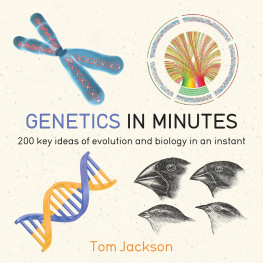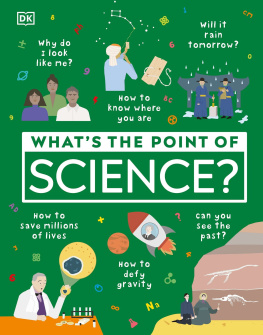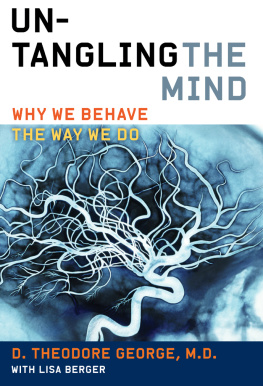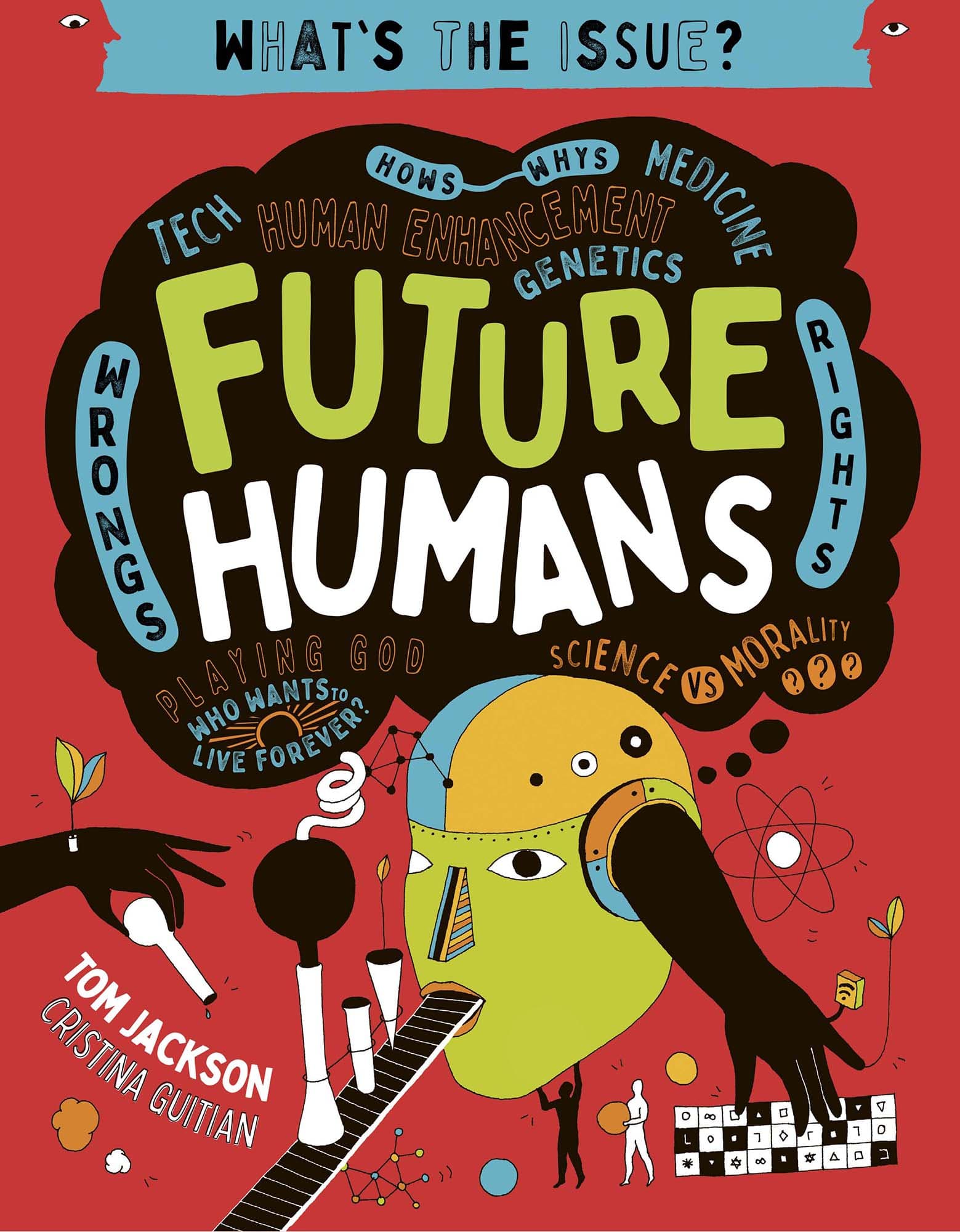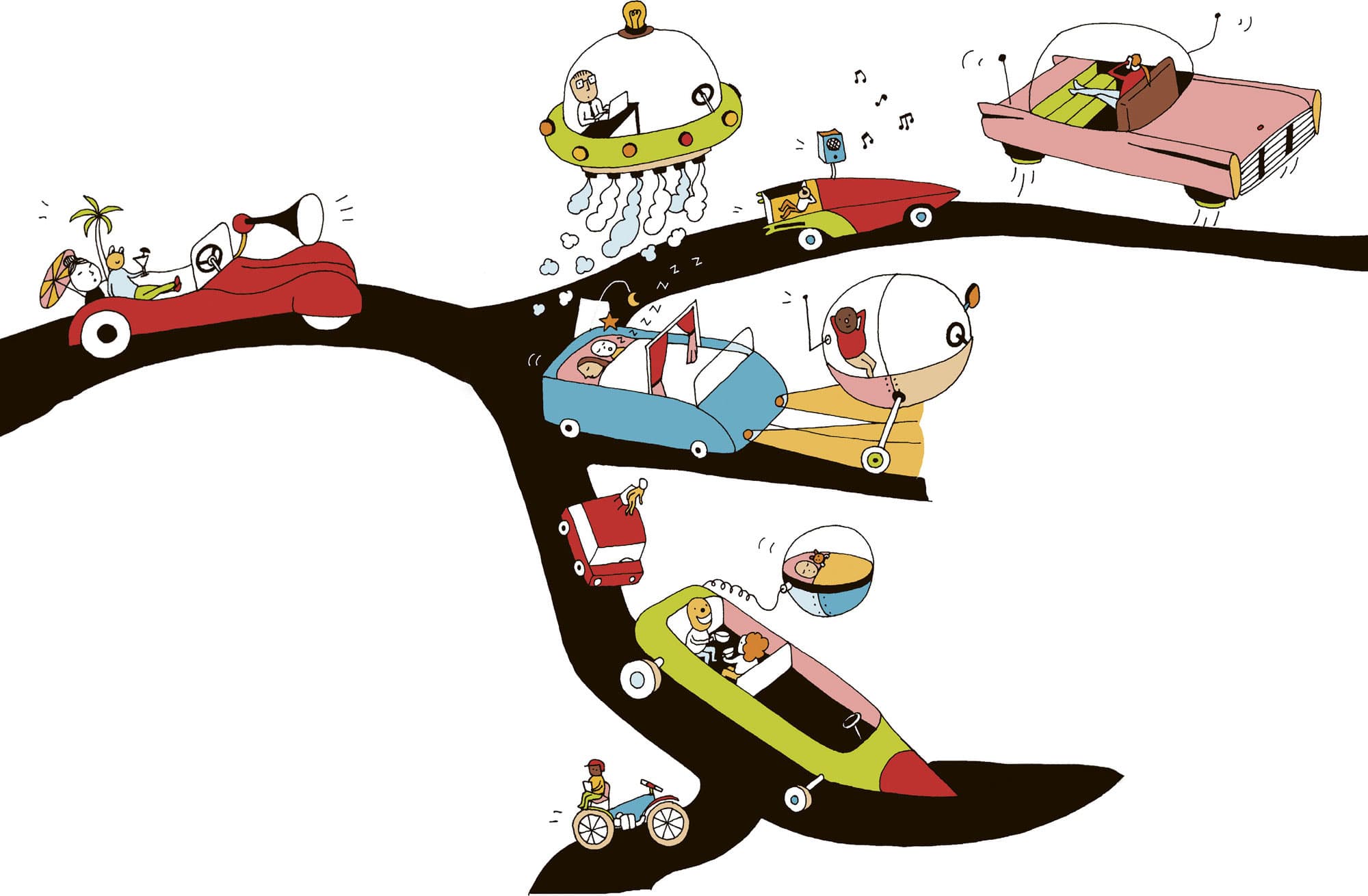How will it change in the future? And could we one day live forever? Mortality is a complicated subject, but never fear because you are in the right place to learn more. I cant give you any simple answers, Im afraid, but this book will help you decide for yourself what the future might hold for the human race. All I can do is tell you what I know and set out whats what and whos who.
THEN ITS UP TO YOU TO MAKE AN INFORMED OPINION.
How we control and change our bodiesand our mindsin the future could transform the way we treat disease and disability. It could change the way we perceive the world and might even cheat death. It sounds like something you need to know about. In this book Ill break it down for you, but even then the wrongs and rights are not always clear. Every now and then, youll get a chance to question what youve read and think about it.
WHAT DO YOU THINK?
WHAT DO YOUR FRIENDS THINK?
WHAT DO YOUR PARENTS THINK?
WHAT DOES YOUR TEACHER THINK?
Everyone and anyone can have an opinion, but not everyones opinion will be informed. With this book, you will have the knowledge to back up your arguments.
OPINIONS MATTER, SO WHAT WILL YOURS BE?
THE FUTURE HUMAN IS YOU
W elcome to the future. Since you were born youve been a time traveler. A lot has changed since you began your adventure; that process of change is what the future is all about. This book looks at how technology will give us greater control over our bodies, allowing us to change them, replace parts, or even do without them at all. What do you think will happen in the future? Theres only one way to find out. Off we go!

ARROW OF TIME
Scientists dont really know what time is; they just know that it never stops and always goes in one direction, from the past into the future. We are aware of time because of a thing called entropy. This is the way that all things eventually fall apart and spread out. For example, old houses always fall down, but bricks never fall up into houses. Entropy is something the human body must deal with as well.
WHATS WHAT?
WHATS A FUTUROLOGIST?
A person who makes a serious attempt to predict the future is called a futurologist. Futurologists can never be completely right, and they are often completely wrongbut, hey, they are giving it a shot. A good rule to follow for futurology is that if it sounds believable, it probably wont happen, and if it appears impossible, it might just turn out to be right.
FUTURE SHOCK
History is always in the past, and we understand it from the records made back then. The Dark Ages 1,500 years ago are so-called because relatively few historical records survive from then. History has been speeding up since people have developed ways to make more records. The worlds computers will record more facts about today than all the facts known about the whole of human history up to the day you were born.
There is often a long wait between having the idea for a new technology and the technology itself. For example, people have been talking about driverless cars for so long that it seems surprising we dont see them on the roads yet. However, one day automated vehicles will appear, and then well be surprised at how quickly they become normal. This pattern is nothing new; we humans just have difficulty imagining how change happensbut are good at adapting once it does.
BODY AND MACHINE?
Technology has advanced significantly in the last 50 years. Revolutionary changes have been made in both computing and medical sciences. How might these merge in the future so that we can revolutionize our bodies? Should they merge? Before we explore that, lets learn more about the body itself.
HELLO EVERY BODY
E veryone has one, they all work the same way, but each one is unique. If were going to think about how we might change the human body in the future, wed better know how the natural body works and what it can do. No other living thing has been studied as closely as the human body. Our bodies are the most complex systems in the universeand so far we cant find anything smarter.
LIFE AND DEATH
On average, male humans are born more often than females. For every 100 girls born, 108 boys arrive. However, the average male is slightly more susceptible to fatal health problems and he has a riskier lifestyle, which means that he is more likely to die than the average woman. By the age of 65, for every 100 women there are just 75 men. Globally, the average woman has a life expectancy of 73.5 years, while the average man lives to 68.5.
THE AVERAGE WOMAN
The average human female is about 15 percent smaller than the average man, but there is a wide range in height and weight. The tallest women live in Latvia, where the average height is 5 ft 7 in (170 cm), while the shortest women are Guatemalans, who average 4 ft 10/ in (149 cm). Women in Kuwait have an average BMI (body mass index) of 31.4, while in Bangladesh the average is 19.8. The average woman globally has 2.5 children in her lifetime. Just 50 years ago, the global average was 5 children.

THE AVERAGE MAN
The tallest men live in the Netherlands, where the average height is 6 ft (183 cm). The shortest men come from East Timor where they grow on average to 5 ft 3 in (160 cm). The fattest men come from Argentina, where the average BMI is 28.7, while in Eritrea, the BMI is 20.1 on average.
All living bodiesand ours are nothing special in this regardmust be able to do eight things to be characterized as alive:
Move
Grow
Remove waste
Reproduce
Have an energy source
Sense the surroundings
Have a source of raw materials to build the body


